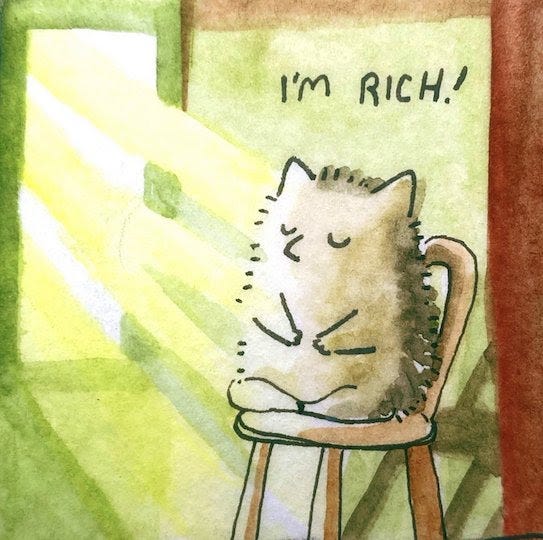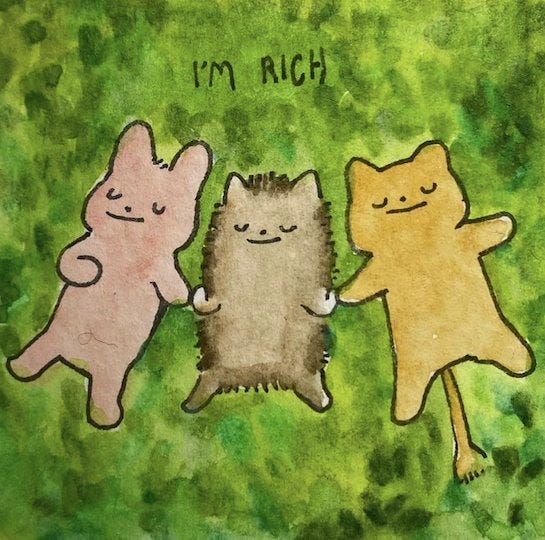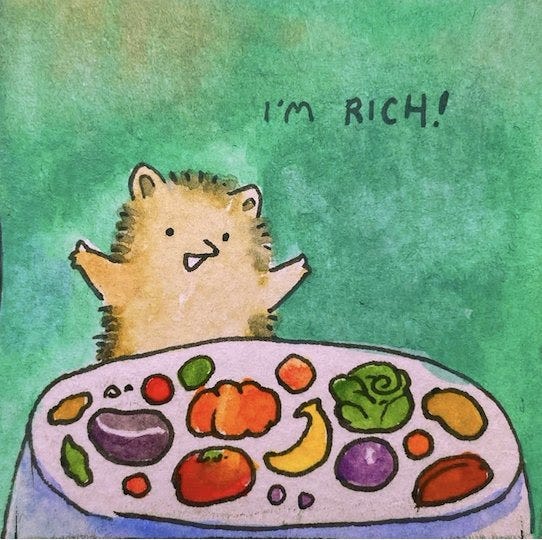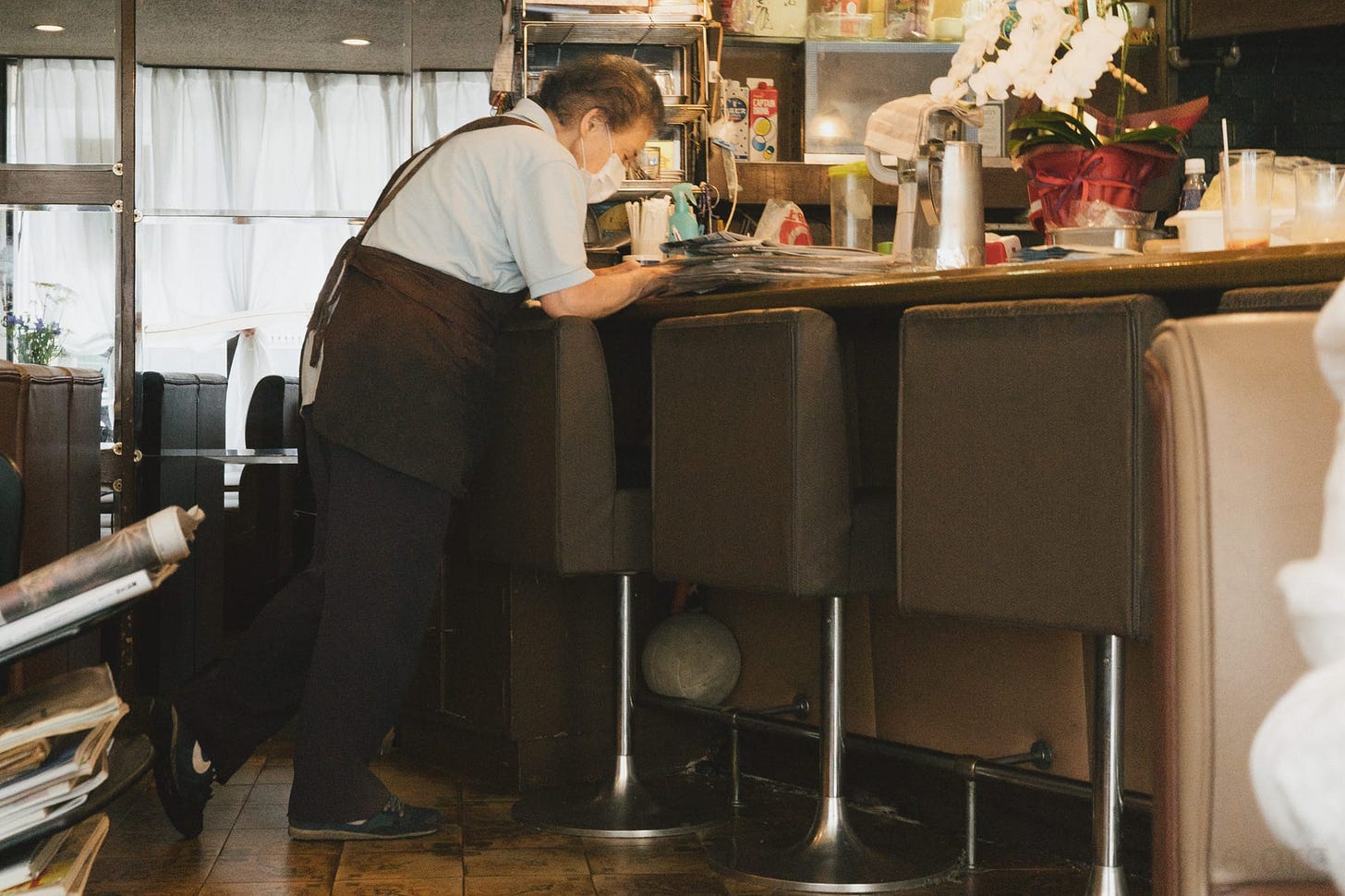Guten Tag Low Fidelity readers!
I hope you’re having a great week so far.
So, I have finally gotten back into creating videos after a longer-than-expected break. I’m not surprised though, because this pattern of behavior is very familiar to me. It usually goes something like this: I try some new activity or habit, and a few weeks into it, I see that my expectations of where I think I my skills should be and the reality of where they are, are far apart so I start believing a story in my head that I am not good and never will be so I lose hope and give up.
But this time is different!
This time I have noticed and am aware of this negative pattern that derails me each time. I am also now focused on the journey instead of the destination. I understand my videos will not be good as I start off so I am focused on improving each time.
This behavior pattern is exactly what the poem, There’s A Hole In My Sidewalk, which I wrote about a few weeks ago is all about.
This time I will go around the hole armed with the tools I need to get me through the obstacles that will come my way again.
This time I am prepared.
This time I am in the right mindset.
But even if I do fall again, I know I will be stronger the next time around.
FYI, It took me 35 tries over three days to record this video but I did it!
Stay tuned for the next video which will be all about resilience!
Give the video a watch and subscribe to follow along. ✌🏽
Here are the gems that have caught my eye this week.
💎 Okyakusama
There is a difference in how American and Japanese cultures view a customer.
In American culture, customers are often seen as consumers who need to be tricked and manipulated into a constant buying cycle.
On the other hand, in Japanese culture, customers are seen as “okyakusama,” a kind of god, a revered and respected figure.
In one of the examples given in the article about a restaurant owner, Vicki, she advises her customer against ordering two sandwiches because one will be big enough to split. She doesn’t try to maximize her sales for profit at the cost of her okyakusama.
Her primary motive isn’t profit; it’s the well-being of her customers. This was just one example of her approach to running a business that isn’t out for profit at all cost.
These are the business owners to support because they are the ones who look out for us.
Who is the Vicky in your neighborhood?
Source: Sim O.N.E
💎 Community Focused Mindfulness
Mindfulness is a powerful tool for our mental health and well-being. There isn’t a day that goes by where I haven’t used it to stop my overthinking and worrying mind and to help me refocus my attention on the present moment. In this article, the author suggests expanding our understanding of mindfulness from a tool purely for self-improvement and looking inward to a tool for “deepening our sense of place within nature and interconnectedness with our community.”
As our communities and our world face major challenges such as climate change, violence, poverty, and hate, the time for community-based mindfulness has never been more important.
We can use mindfulness to help reduce suffering, cultivate compassion, and increase connection with our fellow humans and our world.
Source: Mindbodygreen.com
💎 I’m Rich!




Our lives are full of riches!
Being alive.
Enjoying nature.
Having enough to eat.
Spending quality time with our family and friends.
Most of all, being alive to enjoy all of the wonderful things and experiences in our lives makes us rich.
These paintings by Anna-Laura Sullivan are a good reminder to be grateful for the riches we have in our lives.
See more of Anna-Laura Sullivan's work →
Source: my mind
Let me know in the comments if any of the gems resonate with you. I always love hearing from you. :)
Thanks for reading, and have a fantastic weekend!
Rizwan







The concept of okyakusama reminds me of this video of a fountain pen salesman in Japan. https://youtu.be/KJ9ccLelozg?si=f1xEnoOoXPa53nS4